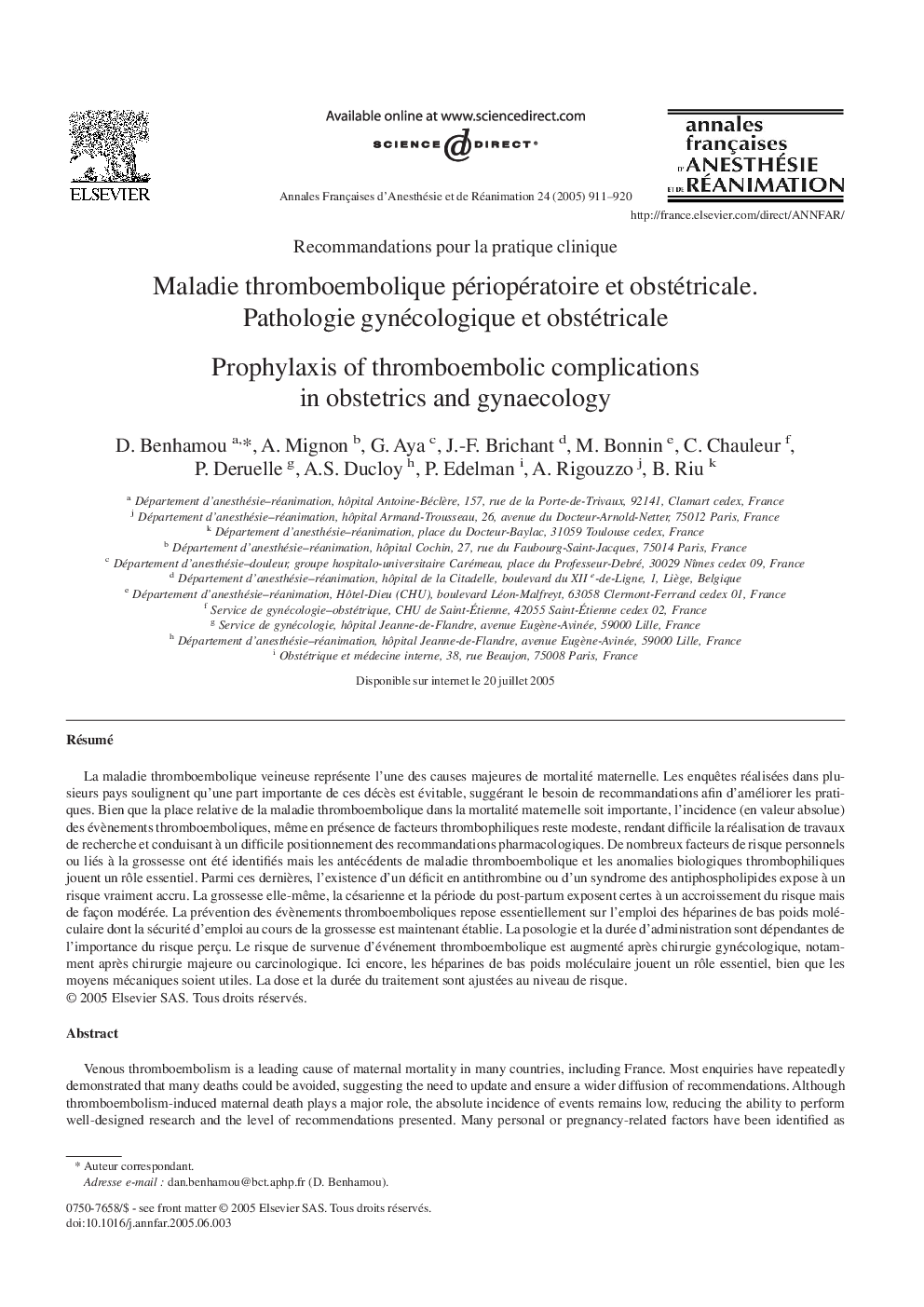| Article ID | Journal | Published Year | Pages | File Type |
|---|---|---|---|---|
| 9091115 | Annales Françaises d'Anesthésie et de Réanimation | 2005 | 10 Pages |
Abstract
Venous thromboembolism is a leading cause of maternal mortality in many countries, including France. Most enquiries have repeatedly demonstrated that many deaths could be avoided, suggesting the need to update and ensure a wider diffusion of recommendations. Although thromboembolism-induced maternal death plays a major role, the absolute incidence of events remains low, reducing the ability to perform well-designed research and the level of recommendations presented. Many personal or pregnancy-related factors have been identified as increasing the risk of thromboembolism in pregnant patients but few of them have been associated with a significantly increased risk. A history of thromboembolic event and some thrombophilic factors (including antithrombin deficiency and antiphospholipid syndrome) carry the greatest risk. Pregnancy itself, caesarean delivery and the postpartum period, although associated with an increased risk play a minor role when not combined with other risk factors. Prophylactic treatment relies mainly on low molecular weight heparins which safety is now well established in pregnant patients. Dose and duration of treatment should be adapted to the perceived level of risk. The occurrence of a thromboembolic event is also increased after gynaecological surgery but major and cancer surgery carry the greatest risk. Here also, low molecular weight heparins play a leading role, although non pharmacologic means are useful. Dose and duration should be dependent on the level of risk.
Keywords
Pulmonary embolismEmbolie pulmonairePregnancyGrossessecaesarean sectionDeep vein thrombosisThrombose veineuse profondeThrombophilieThrombophiliaGynaecological surgeryChirurgie gynécologiqueCésarienneSyndrome des antiphospholipidesAntiphospholipid syndromeMaternal deathMortalité maternelleHéparines de bas poids moléculairelow molecular weight heparinsAntithrombin deficiency
Related Topics
Health Sciences
Medicine and Dentistry
Anesthesiology and Pain Medicine
Authors
D. Benhamou, A. Mignon, G. Aya, J.-F. Brichant, M. Bonnin, C. Chauleur, P. Deruelle, A.S. Ducloy, P. Edelman, A. Rigouzzo, B. Riu,
